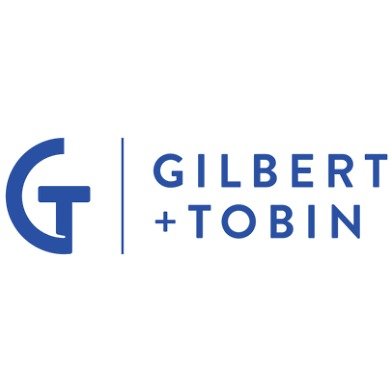Best Mining Law Lawyers in Sydney
Share your needs with us, get contacted by law firms.
Free. Takes 2 min.
List of the best lawyers in Sydney, Australia
About Mining Law in Sydney, Australia
Mining Law in Sydney, Australia refers to the legal framework that governs the exploration, extraction, and management of minerals and other resources beneath the surface of the land. While Sydney itself is primarily an urban area with limited large-scale mining activity, many mining businesses, service providers, and professionals are based in the city to support mineral exploration and operations throughout New South Wales. The laws in this sector are designed to balance commercial opportunities with environmental protection, community interests, and Indigenous rights. These laws cover a range of areas such as licensing, land access, environmental regulation, workplace safety, and royalties.
Why You May Need a Lawyer
Individuals and companies may require legal assistance with Mining Law for many reasons, including negotiating access to land, understanding licensing requirements, drafting commercial agreements, resolving disputes with landowners or government bodies, addressing environmental compliance issues, or navigating changes in mining regulations. Lawyers with experience in Mining Law can help clients interpret complex legislation, ensure compliance, manage risks, and represent their interests in court or negotiations. Whether you are a prospector, mining company, landowner, financier, or community stakeholder, seeking legal advice can help avoid costly mistakes and protect your rights.
Local Laws Overview
In Sydney and throughout New South Wales, Mining Law is largely governed by state legislation, primarily the Mining Act 1992 (NSW) and related regulations. This Act sets out the process for obtaining mineral exploration and mining leases, the rights and obligations of titleholders, requirements for environmental management, and community consultation. Other relevant laws include the Environmental Planning and Assessment Act 1979 (NSW), which covers approvals for mining developments, the Aboriginal Land Rights Act 1983 (NSW) regarding access and use of Indigenous land, and the Work Health and Safety (Mines and Petroleum Sites) Act 2013 (NSW) for workplace safety. Local councils also play a role in land use approvals, although the majority of powers for mineral tenements reside with the state government.
Frequently Asked Questions
What is a mining lease and how do I obtain one?
A mining lease is a right granted by the New South Wales government that allows the holder to mine for specified minerals in a defined area. The process involves extensive application including proof of capability, environmental assessments, public consultation, and payment of fees.
Do I need permission to explore for minerals on private land?
Yes, explorers must first obtain an exploration licence from the state and are generally required to notify and negotiate access arrangements with the private landowner. Compensation for land access may also be necessary.
What environmental laws apply to mining in Sydney?
Mining activities are subject to strict state and federal environmental laws, including requirements for environmental impact assessments, rehabilitation of mine sites, pollution control, and biodiversity conservation.
How does Mining Law address Aboriginal land and heritage?
Mining proposals affecting Aboriginal land or sites must comply with the Aboriginal Land Rights Act 1983 and relevant heritage legislation. This includes consulting with Indigenous communities and sometimes negotiating compensation or agreements.
What are my rights if a mining company wants to access my land?
Landowners have rights to negotiation and compensation but cannot always refuse access if the proper approvals are in place. Legal advice can help negotiate the terms and ensure full compensation for any disturbance.
Are there royalties or taxes payable on mined resources?
Yes, mining titleholders must pay royalties to the state government as prescribed under the Mining Act 1992 (NSW). The amount depends on the type and quantity of minerals extracted.
Can mining operations be challenged or appealed?
Yes, approvals and decisions can often be appealed or challenged through the Land and Environment Court of New South Wales, especially on grounds such as environmental impact, failure to consult, or procedural error.
What workplace safety regulations apply to mining?
Mining operations must comply with the Work Health and Safety (Mines and Petroleum Sites) Act 2013 (NSW) and regulations. These laws require risk management, worker training, safe work practices, and reporting of incidents.
How long does it take to obtain mining approvals?
The timeframe can vary widely depending on the scale of the project, environmental factors, and level of public interest. It can range from several months to several years, especially for large projects requiring extensive assessment.
Is small scale or hobby prospecting permitted?
Small scale fossicking may be permitted in certain public areas with permission and following local guidelines. Larger scale prospecting and all commercial mining require licences and are governed by state laws.
Additional Resources
Individuals seeking further information or assistance with Mining Law can consult the following resources:
- NSW Department of Regional NSW - Mining, Exploration and Geoscience division
- NSW Land and Environment Court
- NSW Environment Protection Authority
- NSW Department of Planning, Industry and Environment
- Aboriginal Land Council New South Wales
- Law Society of New South Wales - Find a Lawyer directory
Next Steps
If you believe you require legal assistance in relation to Mining Law in Sydney or New South Wales, consider the following steps:
- Identify and clearly outline your legal issue or what you need advice about
- Contact a specialist Mining Law solicitor or law firm, or use the Law Society of NSW directory to find qualified lawyers
- Gather any relevant documents such as land titles, agreements, permits, correspondence, or notices
- Schedule an initial consultation to discuss your situation and potential options
- Follow legal advice and keep informed about your rights and obligations under NSW Mining Law
Taking prompt and informed action can help protect your interests and ensure compliance with all relevant laws and regulations in this complex legal area.
Lawzana helps you find the best lawyers and law firms in Sydney through a curated and pre-screened list of qualified legal professionals. Our platform offers rankings and detailed profiles of attorneys and law firms, allowing you to compare based on practice areas, including Mining Law, experience, and client feedback.
Each profile includes a description of the firm's areas of practice, client reviews, team members and partners, year of establishment, spoken languages, office locations, contact information, social media presence, and any published articles or resources. Most firms on our platform speak English and are experienced in both local and international legal matters.
Get a quote from top-rated law firms in Sydney, Australia — quickly, securely, and without unnecessary hassle.
Disclaimer:
The information provided on this page is for general informational purposes only and does not constitute legal advice. While we strive to ensure the accuracy and relevance of the content, legal information may change over time, and interpretations of the law can vary. You should always consult with a qualified legal professional for advice specific to your situation.
We disclaim all liability for actions taken or not taken based on the content of this page. If you believe any information is incorrect or outdated, please contact us, and we will review and update it where appropriate.










